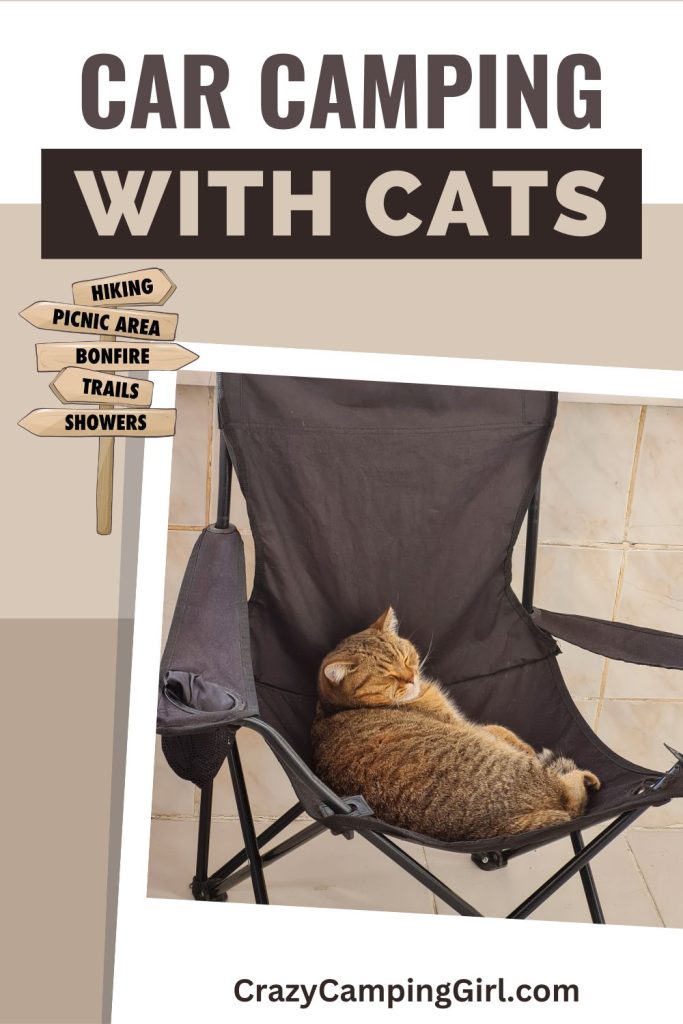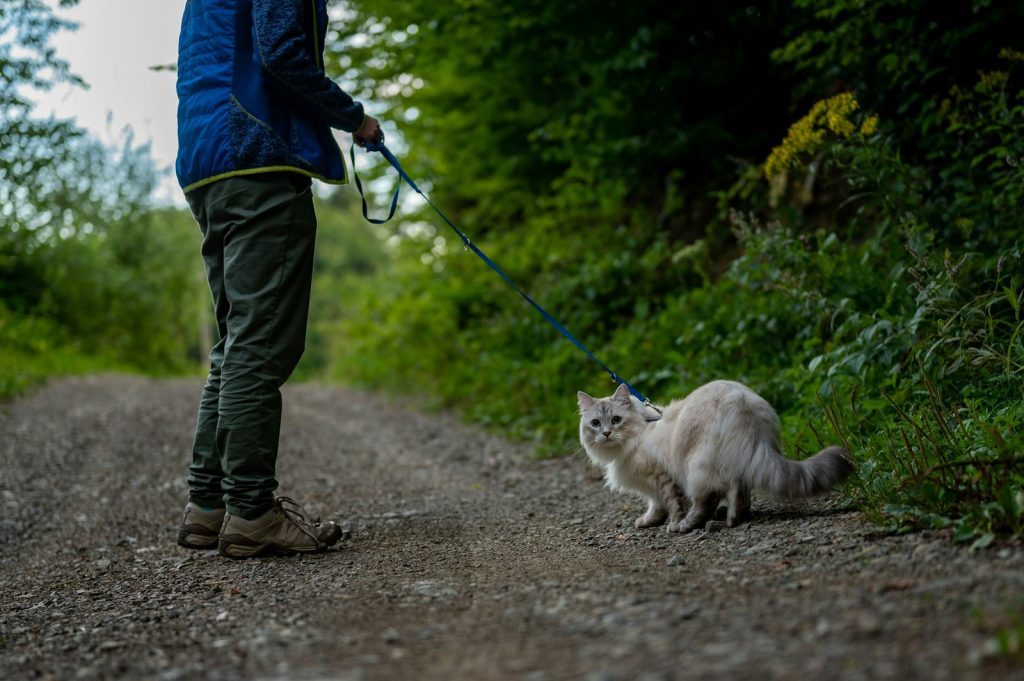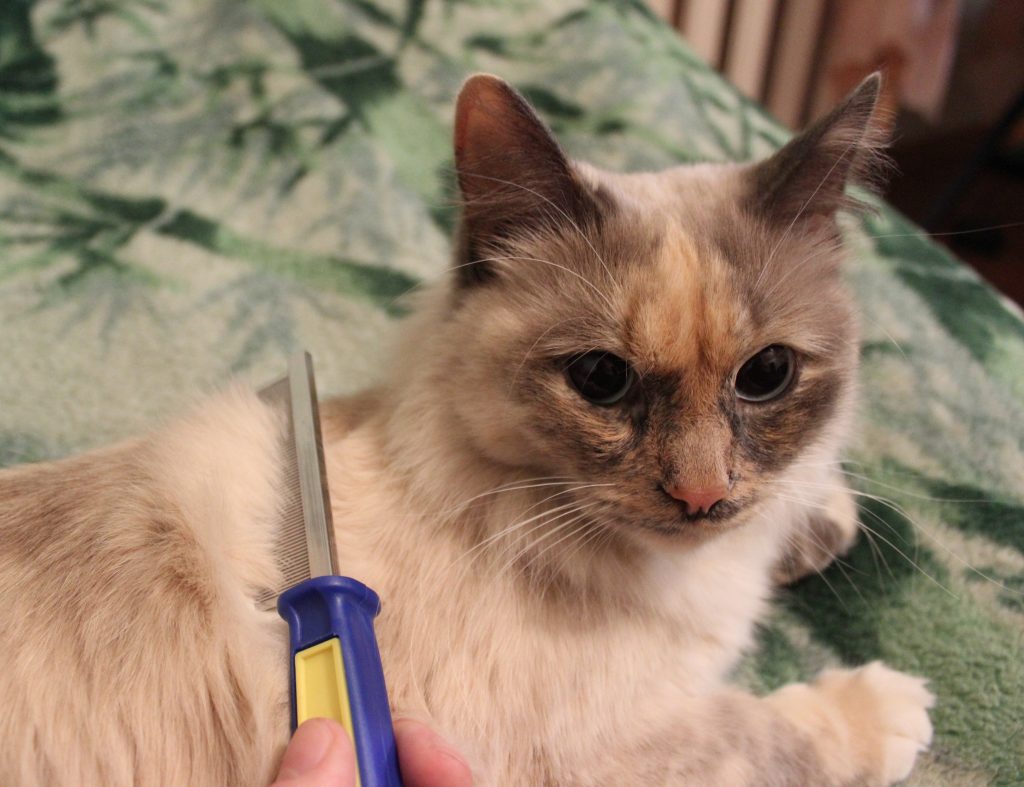
Car Camping with Cats: Tips and Tricks for a Purrfect Adventure
We may earn money or products from the companies mentioned in this post.
Car camping with cats can be a unique and enjoyable experience for both you and your feline friend. However, it requires a bit of preparation and planning to ensure a safe and comfortable trip. Whether you are an experienced camper or a first-timer, there are several things to consider before hitting the road with your cat.

First and foremost, it is important to make sure that the campsite you choose is pet-friendly. Not all campsites allow pets, and those that do may have specific rules and regulations regarding pets. It is important to research and choose a campsite that is suitable for your cat and meets their needs.
Additionally, it is important to make sure that your cat is comfortable with car travel and spending time in a new environment.
Choosing the Right Camping Gear for Your Cat
When planning a car camping trip with your feline friend, it’s important to make sure you have the right gear to keep them comfortable and safe. Here are some essential items to consider:
Cat-Friendly Tents
When choosing a tent for your camping trip, it’s important to make sure it’s cat-friendly. Look for a tent that has plenty of ventilation, as cats can overheat easily. You’ll also want to make sure the tent has a durable floor that can withstand scratching and digging. Some tents even come with built-in pet doors, which can make it easier for your cat to come and go as they please.
Portable Litter Boxes
A portable litter box is an essential item for any cat camping trip. Look for a litter box that is lightweight and easy to pack, but still sturdy enough to withstand the outdoors. Some litter boxes even come with disposable liners, which can make cleaning up a breeze.
Cat Harnesses and Leashes
If you plan on taking your cat on hikes or walks around the campsite, you’ll need a cat harness and leash. Look for a harness that fits snugly but comfortably, and a leash that is long enough to give your cat some freedom to explore. It’s important to make sure your cat is comfortable wearing the harness before you hit the trails.
Cat Backpacks
For longer hikes or walks, a cat backpack can be a great option. Look for a backpack that is comfortable for both you and your cat, with plenty of ventilation and a secure closure. Some backpacks even come with built-in water and food dishes, so your cat can stay hydrated and fed on the go.
Remember to always prioritize your cat’s comfort and safety when choosing camping gear. With the right gear, you and your feline friend can enjoy a fun and safe camping trip together.
Preparing For Car Camping with Cats
Before embarking on a camping trip with your feline friend, it’s essential to prepare your cat for the outdoors. Here are some tips to help your cat adjust to the camping experience.
Acclimating Your Cat to the Outdoors
Cats are naturally curious, but they can also be skittish around new environments. Before heading out on a camping trip, it’s important to get your cat used to the outdoors. Start by taking your cat outside for short periods and gradually increase the time spent outside. This will help your cat get comfortable with the sights, sounds, and smells of nature.
Training Your Cat to Walk on a Leash
If you plan on taking your cat on hikes or walks around the campsite, it’s important to train your cat to walk on a leash. Start by getting your cat used to wearing a harness indoors. Once your cat is comfortable wearing a harness, attach a leash and let your cat explore the outdoors. Reward your cat with treats and praise for good behavior.
Getting Your Cat Used to the Car
Cats can be sensitive to car rides, so it’s important to get your cat used to traveling in a car before heading out on a camping trip. Start by taking your cat on short car rides and gradually increase the duration of the trips. Make sure your cat has a comfortable carrier and plenty of water during the car ride.

By following these tips, you can help your cat adjust to the camping experience and ensure a safe and enjoyable trip for both you and your feline friend.
Choosing the Right Campsite
When it comes to car camping with your feline friend, choosing the right campsite is crucial. Here are some factors to consider:
Pet-Friendly Campgrounds
First and foremost, make sure the campground is pet-friendly. Not all campsites allow pets, and even those that do may have restrictions on where they can go. Do some research beforehand and call ahead to confirm their pet policy. Some campsites may even offer special amenities for pets, such as dog parks or pet washing stations.
Considering the Terrain
Consider the terrain of the campsite. Is it flat or hilly? Are there any hazards such as cliffs or steep drop-offs? Keep in mind that cats are natural climbers and may be drawn to high places. Make sure the campsite has safe areas for your cat to explore and climb, but also keep an eye on them to prevent any accidents.
Keeping Distance from Other Campers
When choosing a campsite, try to pick one that is a bit more secluded. This will not only give you and your cat more privacy, but it will also prevent your cat from bothering other campers. Keep in mind that not everyone is a cat person, so it’s important to be respectful of others’ space.
When choosing a campsite for car camping with your cat, make sure it is pet-friendly, has safe terrain, and is a bit more secluded to prevent any disturbances to other campers.
Safety Measures While Car Camping with Cats
When planning a camping trip with your feline friend, it’s essential to take some safety measures to ensure their well-being. Here are some tips to keep your cat safe and happy while camping.
Keeping Your Cat Hydrated
Cats need plenty of water to stay hydrated, especially when they are outdoors in the sun. Make sure to bring enough water for your cat and keep it in a clean container. You can also bring a collapsible bowl or a water bottle with a built-in bowl for easy access to water. If your cat is not drinking enough water, try adding some wet food to their diet, which contains more moisture than dry food.
Protecting Your Cat from Wildlife

When camping with your cat, it’s essential to keep them safe from wildlife. Predators such as coyotes, foxes, and even birds of prey can pose a threat to your cat. Keep your cat on a leash or in a secure carrier when outside, especially during dawn and dusk when predators are most active. Avoid leaving food out, as it can attract wildlife to your campsite.
Emergency Veterinary Care
It’s always better to be prepared for emergencies. Research and locate a veterinary clinic near your campsite before you leave. Bring a first-aid kit and any necessary medications your cat may need. Keep your cat’s identification tags and microchip information up to date, so they can be easily identified if they get lost.
By following these safety measures, you can ensure a safe and fun camping trip with your feline friend.
Post-Camping Care for Your Cat
After a fun-filled camping trip with your feline friend, it’s important to take some steps to ensure their health and well-being. Here are a few things you should do to take care of your cat after a car camping trip.
Checking for Fleas and Ticks

One of the first things you should do after returning from a camping trip is to check your cat for fleas and ticks. These pesky critters can easily attach themselves to your cat while they are exploring the great outdoors. Use a fine-toothed flea comb to check your cat’s fur for any signs of fleas or ticks. If you do find any, remove them carefully with tweezers or a tick removal tool. Be sure to dispose of them properly.
Re-acclimating Your Cat to Home
Your cat may feel a bit disoriented or stressed after returning home from a camping trip. To help them readjust to their normal routine, make sure they have a comfortable and familiar space to retreat to. Set up their bed and litter box in a quiet area of your home and give them plenty of attention and affection. You may want to consider feeding them their favorite foods or treats to help them feel more at ease.
It’s also important to keep a close eye on your cat’s behavior and health in the days following your camping trip. If you notice any signs of illness or discomfort, such as lethargy, loss of appetite, or vomiting, contact your veterinarian right away.
By taking these simple steps, you can help ensure that your cat stays healthy and happy after a car camping trip.
Frequently Asked Questions about Car Camping with Cats
How can I make my car camping trip comfortable for my cat?
Making your car camping trip comfortable for your cat requires some preparation. You can bring your cat’s favorite bed or blanket, toys, and treats to make them feel at home. Additionally, you can create a cozy space for your cat by using a carrier or a crate. This will give your cat a sense of security and a place to retreat to when they need some alone time.
What are some essential cat camping accessories?
Essential cat camping accessories include a litter box, food and water bowls, a leash and harness, and a first aid kit. You should also bring your cat’s regular food and any medication they may need. A cat carrier or crate is also essential for safe transportation.
What are the best cat litter box options for camping?
The best cat litter box options for camping are those that are portable and easy to clean. Disposable litter boxes are a good option because they are lightweight and can be thrown away after use. Alternatively, you can use a small, collapsible litter box that can be easily packed in your car.
Are there any tips for tent camping with a cat?
Tent camping with a cat requires some extra preparation. You should make sure your cat is comfortable in the tent before you go camping. You can set up the tent in your backyard and let your cat explore it.
Additionally, you should bring a litter box, food and water bowls, and a carrier or crate for your cat to sleep in.
What should I do with my cat while camping during the day?
While camping during the day, you should keep your cat in a carrier or crate to ensure their safety. You can also bring a leash and harness and take your cat for short walks. Make sure your cat has access to food, water, and a litter box while you are away.
How can I safely travel long distance with my cat in a car?
Safely traveling long distance with your cat in a car requires some preparation. You should make sure your cat is comfortable in their carrier or crate and has access to food, water, and a litter box. Additionally, you should take frequent breaks to allow your cat to stretch their legs and use the litter box. You can also talk to your veterinarian about medication to help your cat relax during the trip.
